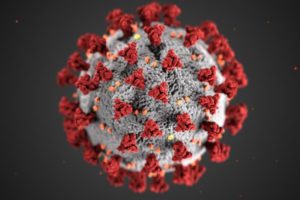Being vegan helps prevent the suffering of innocent animals, slows global warming, and benefits the environment in many additional ways. Being vegan increases the food supply available to humans and wild animals, too. It helps people suffering from poverty get by. Being vegan helps us stay healthy and lowers our risk for many serious diseases. And as more and more people become vegan, the extent of this good simply grows and grows.
It’s perplexing that so many people have not yet caught on, but veganism is really the way to go. Here is a brief overview of the realities behind that:
Veganism helps animals
That being vegan helps animals is obvious. In our world today, some 70 billion innocent land animals live and die each year, treated only as ‘things’ ‘produced’ to feed us. The great majority of them live out their lives on intensive, so-called factory farms where they suffer horrific conditions of extreme crowding, often living in their own filth. Egg laying chickens, for example, live 6 or 8 to a small cage with only a wire mesh floor on which to stand.
Many – even most – are intentionally maimed. Egg laying chickens have their beaks chopped short; pigs have their tails and protruding teeth ‘docked.’ In both cases, this is done so that the tortured animals will not bite or chew on each other in the extraordinarily crowded conditions that they endure. Emotional abuse is rampant, too. For example, pregnant pigs and new mothers live in ‘farrowing crates’ where they can do no more than stand up and lie down for the great majority of their adult lives. Turning around is impossible.
To get a visual idea of just how terrible the conditions are, visit the Canadians for the Ethical Treatment of Farmed Animals website, where it is well documented. The investigations of Mercy for Animals and Animal Outlook are worth looking into as well, including in Canada (see this and this, too). Slaughter processes are extremely cruel as well.
So-called ‘humane’, ‘free-range’, or ‘cage free’ farms offer only marginal improvements in the conditions the animals are required to suffer, at best. And the animals from these farms are all shipped to the same slaughterhouses to suffer the same cruel fate as the others.
None of this would occur at all if we all were vegan. Nor would the roughly 1 to 3 trillion fish and other aquatic life be pulled from the sea each year to terrible deaths.
Veganism is good for the environment – extremely good for the environment
The damage done by animal agriculture to the environment is enormous – on a scale beyond our abilities to in any real sense comprehend. It is responsible for 15–25% of global warming – more than that of all of the cars, trucks, trains, planes and boats in the world combined. Indeed, were we to all become vegan now, it would be equivalent to removing between 9 and 16 years of global fossil fuel CO2 emissions by 2050. Animal agriculture’s main contributors to global warming are the methane emissions from farmed animals and their manure, extremely potent nitrous oxide from fertilizers, and the destruction of millions of acres of forests.
Animal agriculture is responsible for the great majority of tropical rainforest destruction; the slash and burn destruction of the forests pours enormous amounts of carbon dioxide into the atmosphere and, with the trees burned and gone, there is less plant life to take up the carbon dioxide that we continually pour into the atmosphere. Thousands upon thousands of species are extinct because of it, too.
Animal agriculture does tremendous environmental damage in other ways as well. It is the major contributor to the dead zones that plague the mouths of so many rivers – areas where so little oxygen persists that most fish and other aquatic life suffocate. The vast majority of ammonia emissions in North America is from animal agriculture; nitrates from manure and fertilizer (the latter, mostly used to grow feed for animals) seep also into rural drinking water supplies. Hydrogen sulfide emissions from rotting manure lagoons have killed people.
The damage is so very extreme and this just skims the surface of it all. To get a good feel for this, see this recent article, which presents lots of evidence in an easy to understand way by comparing the impacts of veggie burgers and meat burgers.
Veganism makes it much easier to feed ourselves, while using far less land
Many studies have shown that we could feed ourselves on a fraction of the land that we use now if we were to become generally vegan. A 2018 study, published in one of the most rigorous scientific journals shows that just American land alone could feed 350 million more people were it devoted to producing vegan foods. Another very high quality study has shown that we could feed 4 billion more people than we feed now on the same land if all the crops were fed to humans instead of to animals for human consumption. Of course, that also means that we could revert huge tracts of land back to nature if we were to maintain or shrink our human population.
Indeed, as this recent study notes, “By replacing meat with the devised plant alternatives—dominated by tofu, soybeans, peanuts, and lentils—Americans can collectively eliminate pastureland use while saving 35–50% of their diet related needs for cropland ….” In fact, were we to all become vegan, the land used to feed us would drop by a whopping 75%!
This is mostly because animal agriculture is extremely inefficient. When we eat animals, we must use enormous amounts of land in order to feed ourselves. As Vaclav Smil, at the University of Manitoba, has very carefully documented, when we eat animals we – in effect – throw away at least 80% of the protein and calories we could have eaten were we to simply eat plant-based foods ourselves. Others have found similar inefficiencies: Shepon, et al found that “Averaged over all categories, caloric and protein efficiencies are 7%–8%.” In other words, over 90% of that fed to the animals is lost.
This inefficiency has other serious consequences. For example, animal agriculture is responsible for the bulk of agricultural soil depletion in North America and the world. Most of this damage, worldwide, is due to the clearing of forests and, in North America, to plowing fields – both of which occur to facilitate the growing of the corn and soy used to feed farmed animals or produce biofuels.
And it gets worse.
Shockingly, recent research has shown that we have killed off the vast majority of wildlife in the world, largely as a result of our rampant eating of animals and their byproducts. Indeed, the combined weight of the animals farmed by humans is now much greater than that of all of the wild animals in the world. Only 4% of the mammalian biomass in the world are wild mammals. Farmed animals (at 60%) and we humans (36%) comprise the rest. Among birds, some 70% by weight are farmed birds, mostly chickens.
Since 1970, the population of wild vertebrates has dropped by over two-thirds. In the American tropics (Central America and northern South America), numbers have dropped even further. As the report notes, forest clearing – mainly for animal agriculture – is predominantly responsible for this collapse.
Estimates are that wild land animal biomass before human civilization began was approximately 7 times higher than it is today. It is tragic that we’ve wiped out the vast majority of that life and we’re continuing to wipe out more today. If we would all go vegan, these harms would begin to be reversed.
And being vegan does even more good – by alleviating poverty and improving our health
At least a billion humans struggle unnecessarily for food. Widespread adoption of vegan diets would make food much more available for them. Because so much soy and grains would no longer be ‘needed’ to feed farmed animals, demand for those staples would drop, very probably leading to much lower prices.
The general health of our society would also improve. Balanced vegan diets are well established to be very good for us. They are associated with substantially lowered risk for cardiovascular disease, type 2 diabetes and some cancers. This is a wonderful bonus for choosing a diet that does so much less harm to the environment and could spare trillions of innocent animals from horrific lives.
Widespread veganism would also aid our health by slowing the evolution of antibiotic-resistant bacteria. Amazingly, some 80% of antibiotics – by weight! – used in North America are fed to farmed animals; they are standard components of animal feed. This leads to bacteria becoming resistant to those drugs – and is probably the major driver of the increasing crisis of antibiotic failure that is growing and now leading to the deaths of hundreds of thousands of people each year.
Lastly, it must be emphasized in this time of COVID-19 that a world full of vegans would be a world with far fewer pandemics – and would likely essentially eliminate the seasonal flu. What a massive health benefit that would be!
We can change the world
Think about it. For minor gustatory pleasure, we kill billions upon billions of animals each year, devastate the environment, and subject ourselves unnecessarily to chronic and infectious diseases, pandemics included. In collectively going vegan, we could eliminate the vast majority of all of that. We could lead healthier lives while at the same time letting nature regenerate itself. Veganism truly is a slam dunk.
Photo by Wallace Chuck from Pexels







